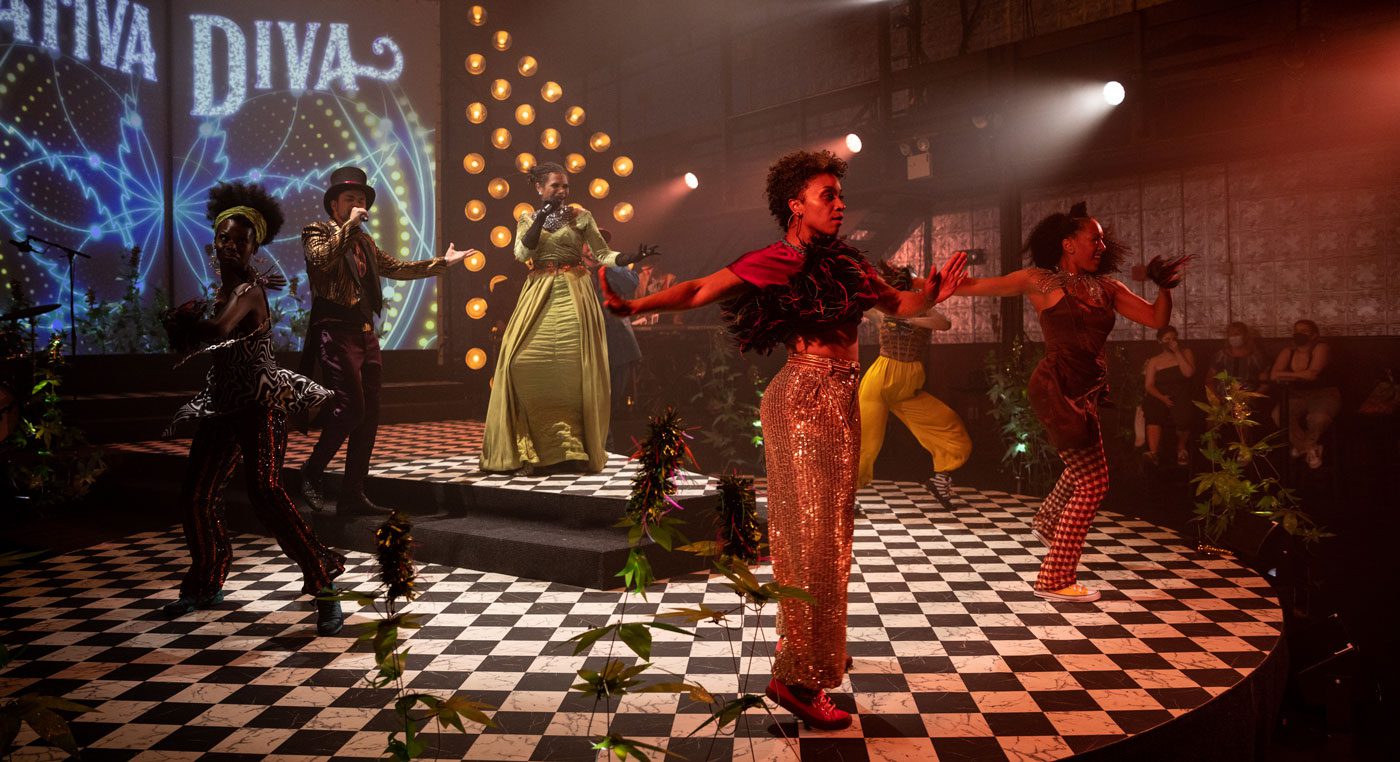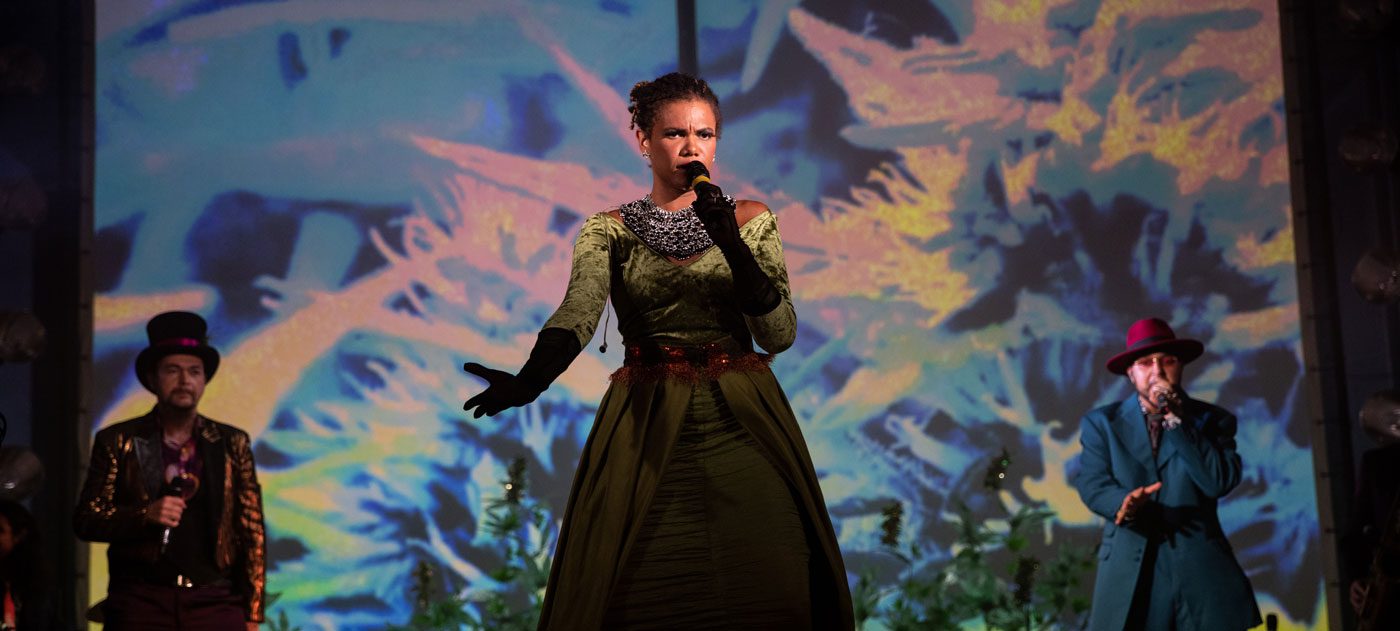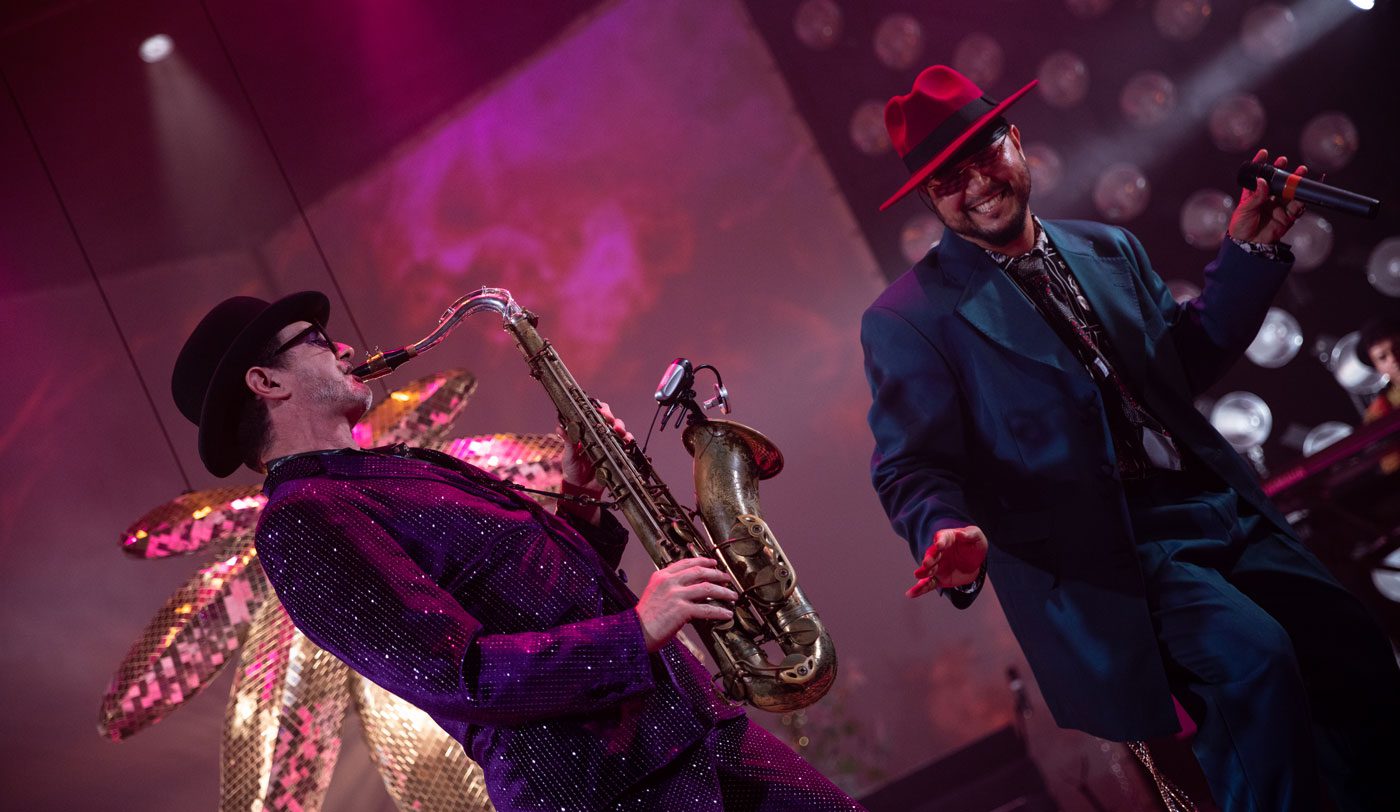What do vaudeville performances, musicals, and cannabis have in common? Not much. Not much, that is, until the new show Cannabis! A Viper Vaudeville musical combined the best of all three worlds into something wholly unique.
Brought to us by La MaMa Presents and A Here Production, with music composed by Grace Galu, libretto and co-direction by Baba Israel, dramaturgy and co-direction by Tavin Wilks, and associate direction and environment design by Nic Benacerraf, the play takes a campy Reefer Madness-esque look at the serious realities behind cannabis legalization — or lack thereof.
We spoke to Baba Israel and Nic Benacerraf about the production, the story behind it, and hopes for the future of cannabis and theater.
What made you all want to make a cannabis-themed musical?
Baba: The project began when I connected with Martin Lee, the executive director of Project CBD, and the author of Smoke Signals: A Social History of Marijuana – Medical, Recreational and Scientific. I ran into him in a 420 cafe in Amsterdam, and we started talking about cannabis. He gave me his book, and I was really inspired by his exploration and history of cannabis through culture, politics, artists, and different types of activists, and really telling the story in a way that didn’t feel like history, but like a kind of artistic adventure through time with some really powerful stories of injustice, resistance, and cultural revolution. When I read the book, I felt that it could make an amazing show because he references different musical movements that are connected to cannabis, and I thought about how there is so much great music associated with cannabis. There are so many important stories to tell. And, as legalization rolls across the country, I really felt it was important to document what the story of prohibition was so that we could artistically advocate for more equitable cannabis rollout in terms of legalization and the cultural, artistic, and political values that have often been associated in cannabis, so that they wouldn’t be completely lost in commercialization.
When you were going through the process of making a cannabis musical, did you encounter any friction in how the world of cannabis responded to musical theater, or how the theater world responded to cannabis?
Nic: Oh absolutely. We got a lot of support from our specific community, but the theater community was definitely wary and skeptical. For lack of a better term, the white, elderly theater crowd . . . they weren’t necessarily reacting badly to us, but they weren’t necessarily sure of what we were trying to do. And then some people who were interested in the cannabis aspect didn’t necessarily feel that theater was accessible to them.
Baba: I was surprised that it was hard to find coverage — We got in contact with cannabis writers, but it was harder to reach art or theater writers. It was also hard to advertise; for example, we tried to run Facebook ads, but because they included cannabis, Facebook wouldn’t run the ads. So there were those sort of structural challenges and issues with things like running ads.
In terms of the future of cannabis in the arts, what sort of changes in equity and accessibility to the content that is being created would you like to see?
Baba: I want to see Black and Brown communities, I want to see queer communities, and communities that have legacy operators, in the industry as local, craft type of businesses and micro-businesses. I’d like to see those voices centered in legalization. There’s exciting stuff happening here in The Bronx right now. There is a cannabis hub that has been developed to ensure that local people are moving into the cannabis industry, especially folks that have often been left out of urban, economic development.
I really want to see cannabis also become a new art funder. In the past, a lot of theater companies were funded by underground cannabis folks. There’s a great tradition of funding the arts, and as companies start to make profit, whether it’s in individual states or once federal legalization happens, I want to see cannabis invest in the arts and invest in culture, because we really struggle as artists, and we need people to invest in a sustainable way.
Is there anything else you’d like to add?
Baba: I just want to include that, as always should be said, we owe a lot to the folks who lost their life because of the war on drugs and who were unjustly arrested for cannabis
For more information on Cannabis! A Viper Vaudeville, visit lamama.org




